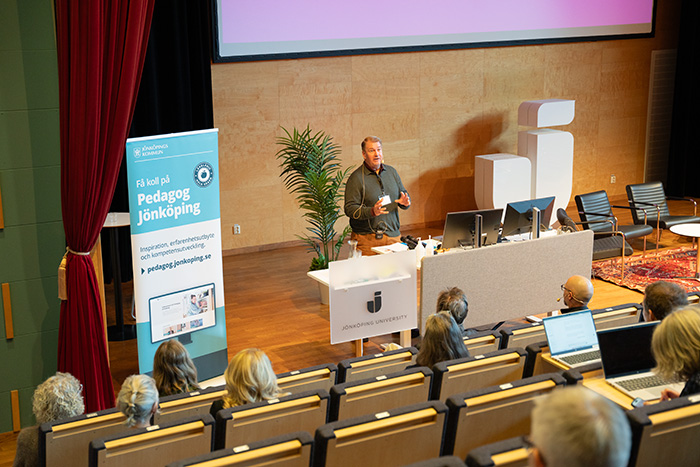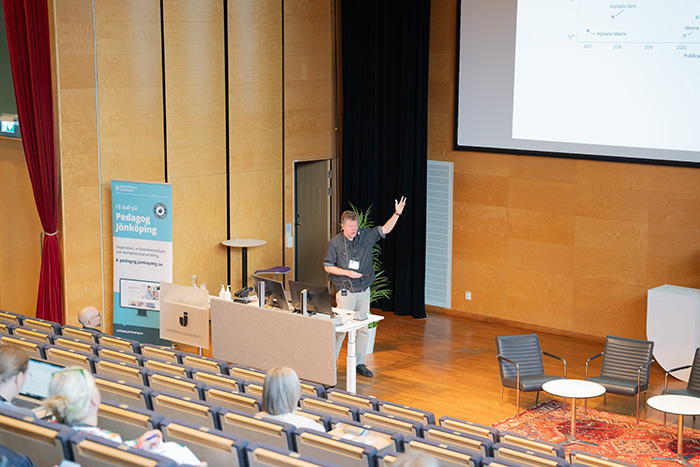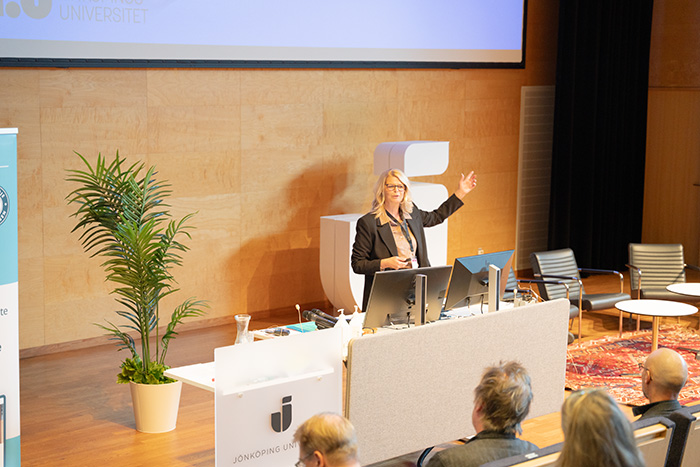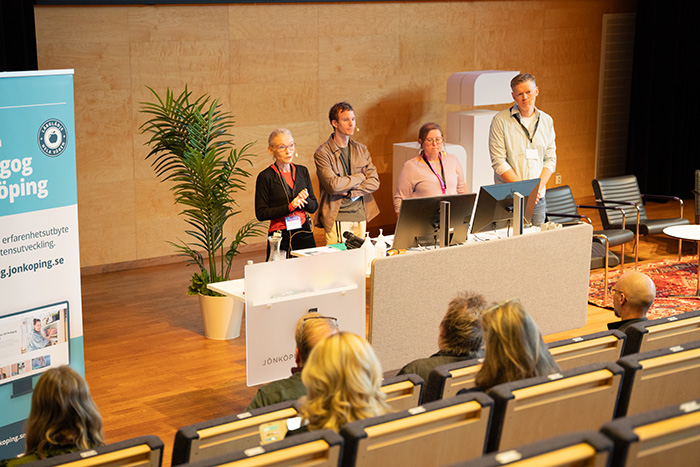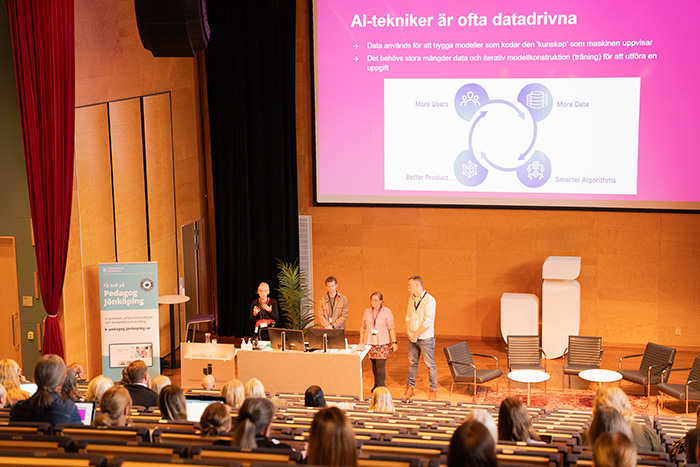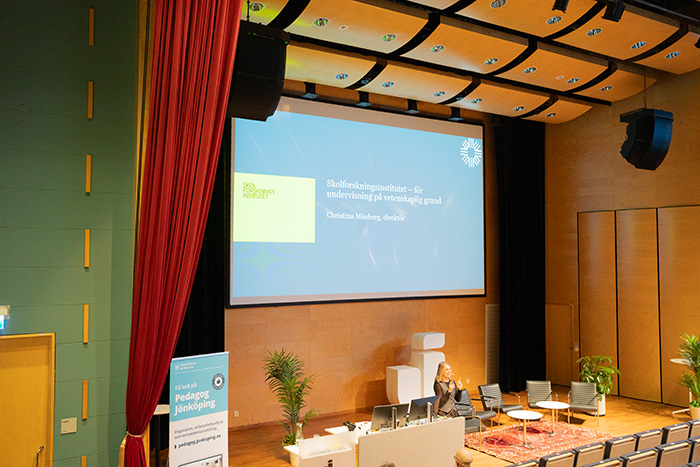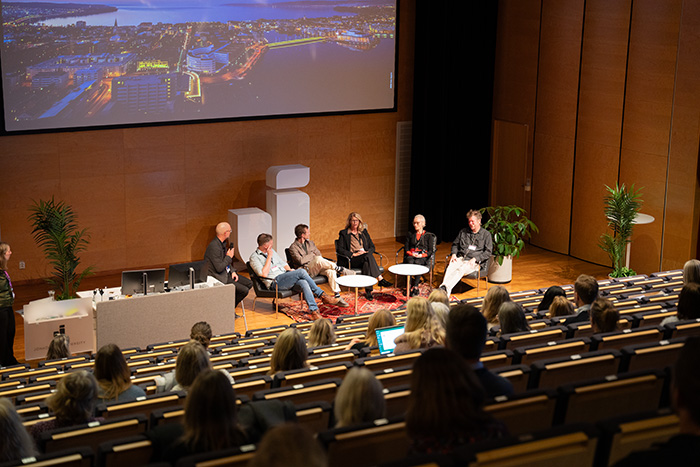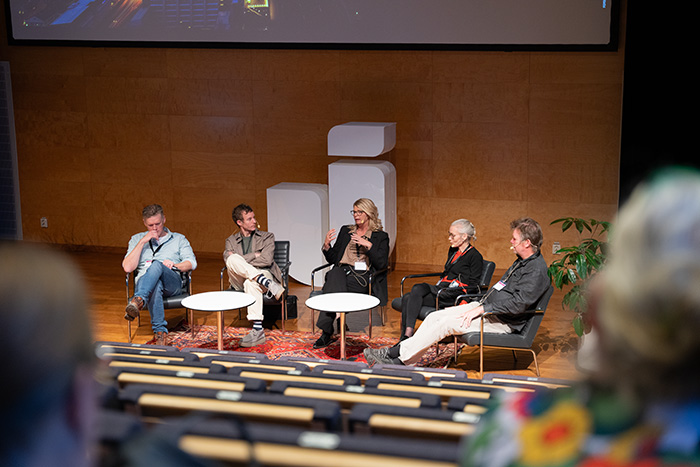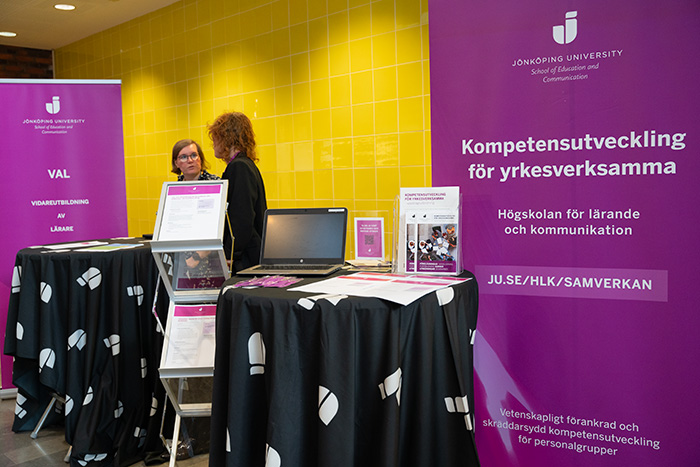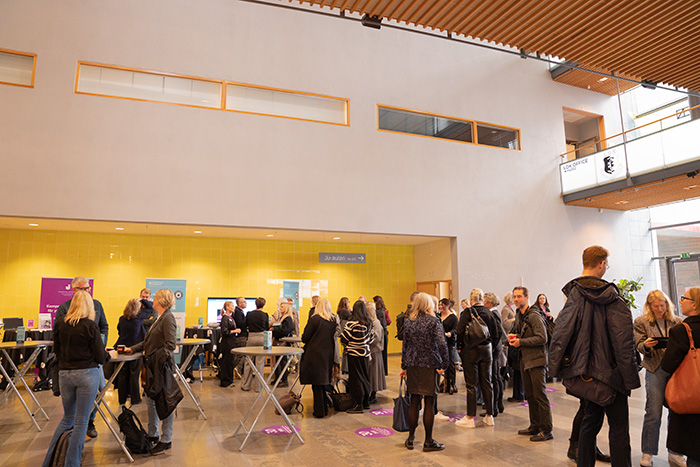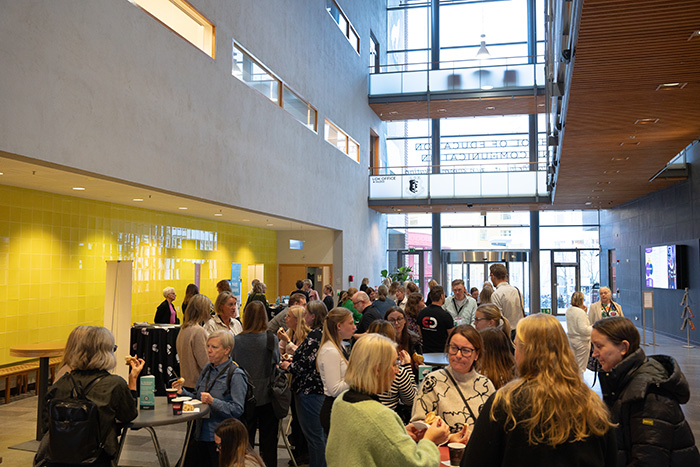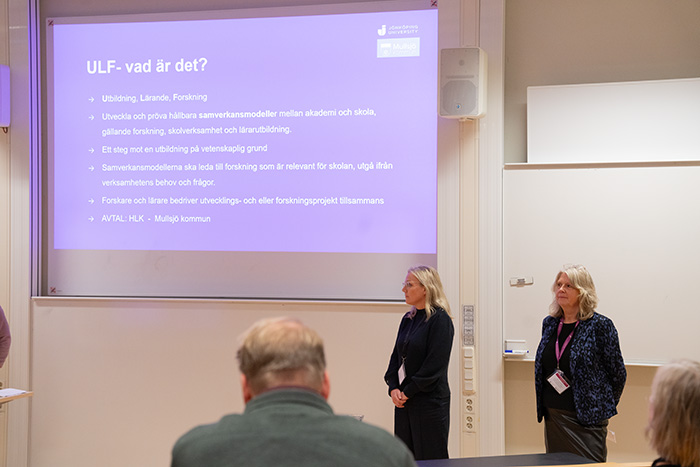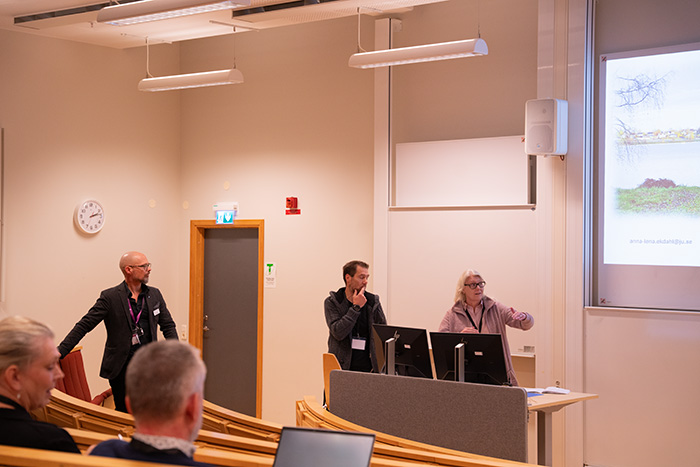Popular conference brings research and practitioners together
The conference Research-based teaching - theory and practice in collaboration, was held on 5 November at the School of Education and Communication (HLK) at Jönköping University (JU) for the eighth consecutive year. The conference is organized by HLK and Jönköping Municipality, and this year it focused on how AI can change the conditions for schools and the education system.
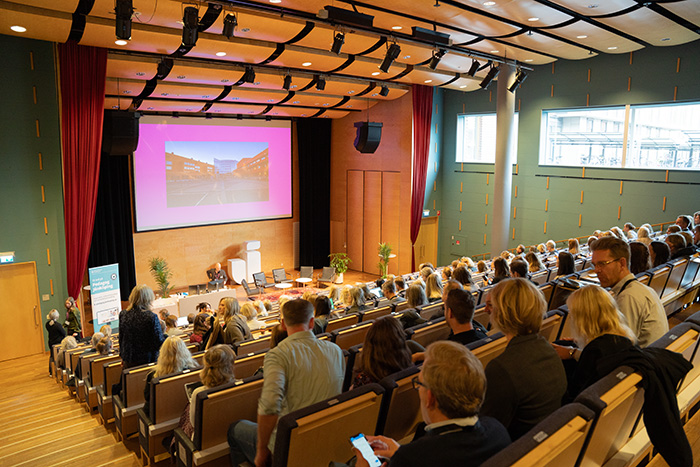
The aim of the conference is to bring together school professionals and researchers to create a platform for exchange of experience and networking. During the full day at HLK, teachers and researchers shared knowledge and different perspectives, and strengthened collaboration.
“We can see that this annual conference is both appreciated and important. It is about making research relevant and useful, so that academic theories and concepts have practical significance. Together with practitioners in schools, we can thus help to develop teaching,” says Jesper Boesen, Head of Collaboration at HLK.
Jesper Boesen opened the conference by welcoming everyone and going through the programme. Erik Nilsson, Director of Education for Jönköping Municipality, also welcomed everyone and emphasized the importance of these conferences precisely because collaboration between research and teaching is so important.
The first speaker of the day was Olle Häggström, Professor of Mathematical Statistics at Chalmers, who spoke on the topic of AI development and the transition period we live in.
Linnea Stenliden, Professor of Pedagogical Work at the Department of Behavioural Science and Learning at Linköping University, then took over. Linnea's lecture was entitled From blackboard and chalk to CHATGPT in school: navigating new landscapes for teaching and learning.
Learning and competences in change in a post-digital era - AI in focus was the item on the agenda after the coffee break. The speakers were Ylva Lindberg, Professor of Pedagogy, specializing in language and literature didactics at HLK, Maria Bäcke, Senior lecturer in literature, also at HLK, Joel Rangsjö, AI business developer, Jönköping municipality's education administration, and Andrew Galbraith, First teacher in AI, Erik Dahlbergsgymnasiet in Jönköping, who talked about how AI can be used for educational purposes.
Project presentations in parallel sessions
After lunch, there were parallel sessions where participants could choose from a variety of short lectures. With titles such as: From idea to reality: The development of Sweden's first AI course in upper secondary school, Good examples for school attendance, ULF projects, When Screen Time becomes Learning Time - meaningful screen time (and a little bit of AI), The role of the first teacher - A changing role or tension between two logics and I think they feel in the heart of a preschool teacher if you are there for the right reason - A qualitative interview study on pedagogical relationships in preschool from the perspective of preschool teachers, there were many interesting lectures for the participants to listen to.
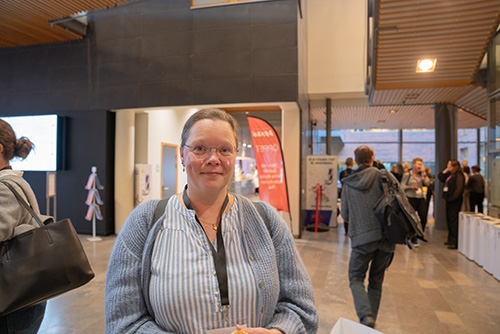
Åsa Cederholm
One of the participants at the conference was Åsa Cederholm, a special needs teacher at Anna Dalin's preschool in Huskvarna. She has been to the conference four times before and likes the arrangements.
“The conference is fun and exciting, that's why I come back. Maybe a little more ‘difficult’ theme this year with AI. It's not something we've immediately started talking about at the preschool, but it's both exciting and a little scary. We have to start talking about AI and what the role of preschools will be in this,” says Åsa Cederholm.
Christina Månberg, Director of the Swedish School Research Institute, then talked about how they help to ensure that teaching in preschools and schools is conducted on a scientific basis and how they compile various research results.
The conference ended with a panel discussion. Olle Häggström, Linnea Stenliden, Ylva Lindberg, Andrew Galbraith and Joel Rangsjö answered questions from conference participants and discussed the opportunities and responsibilities of AI in the world of education.
“I am very happy with the conference. It's always difficult to know beforehand, even if you think it looks good on paper. Because the participants at the conference are so committed to their professions and with speakers who are captivating, it was successful again this year. Many people, both at Jönköping municipality and at HLK, have worked hard with the conference, so it's great that it turned out well,” says Jesper Boesen.

